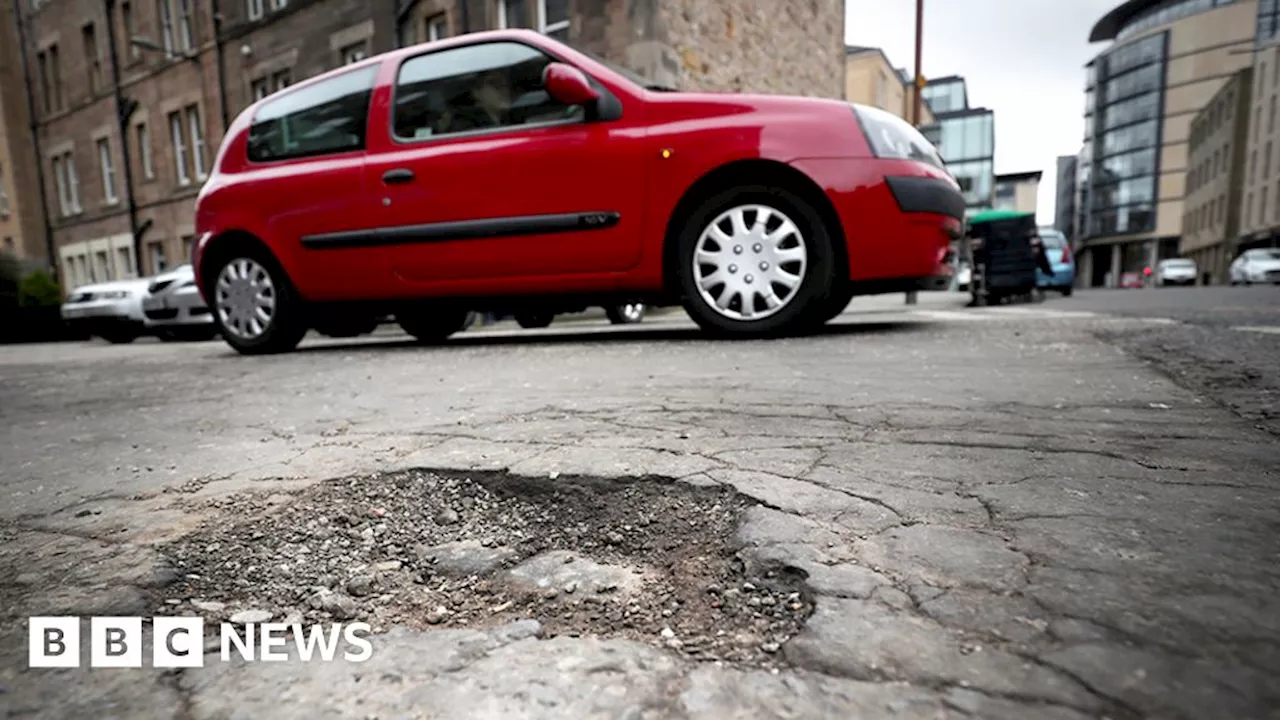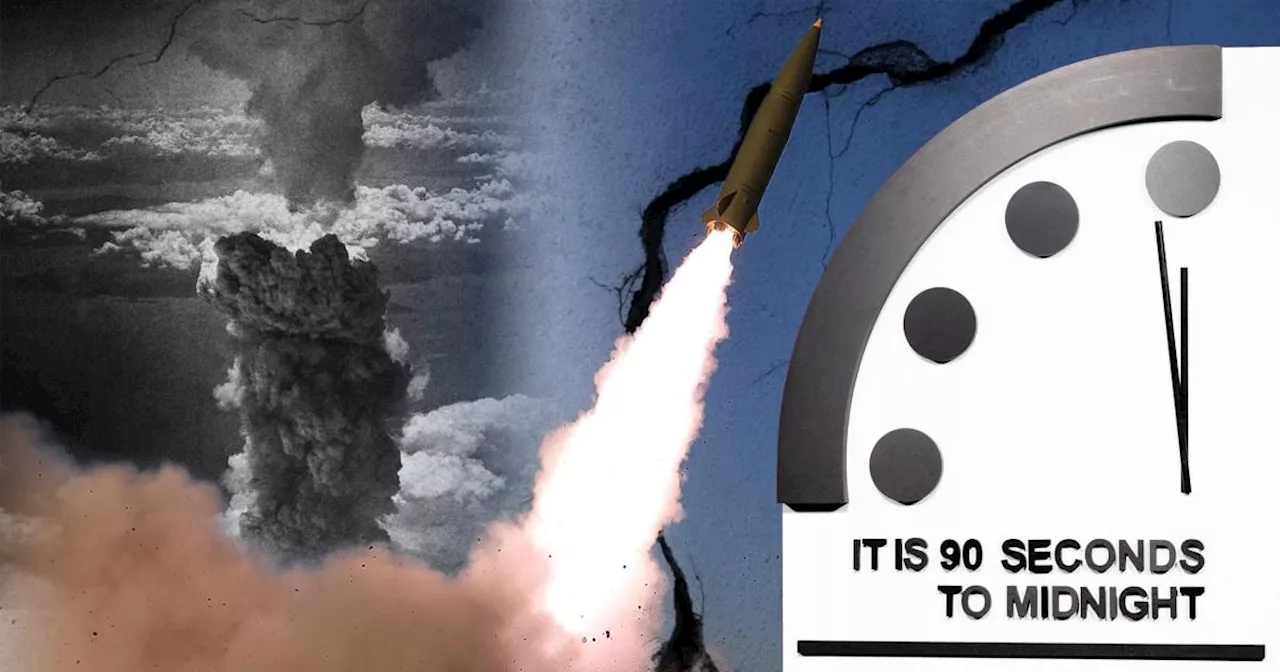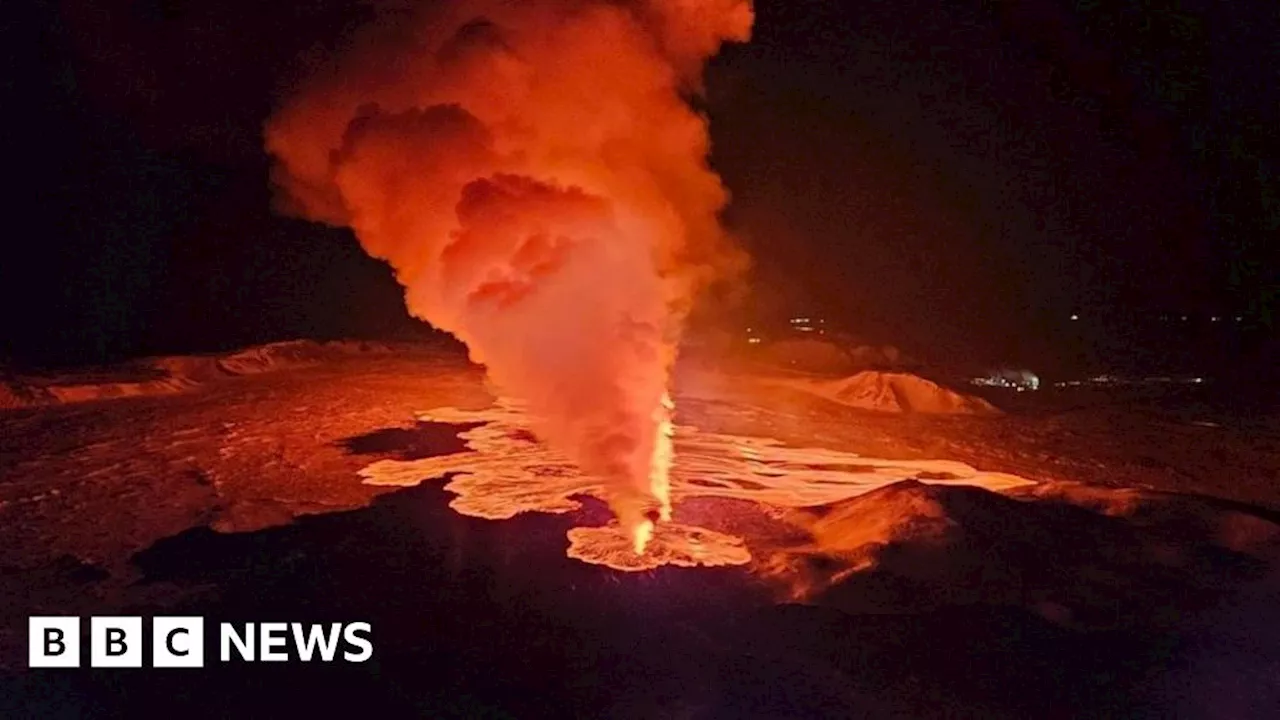Scientists think eruptions on the Reykjanes Peninsula could continue for decades or even centuries.
By Rebecca Morelle and Alison FrancisThis week, Iceland woke up to yet another day of fire, as towering fountains of lava lit up the dark morning sky.
As the magma builds up underground, the pressure increases until it breaks through the surface in an eruption .But the last time the Reykjanes peninsula saw any lava flow was hundreds of years ago - that may have started as early as the 8th or 9th Century and continued until 1240.
"So this is proceeding as expected at the moment. And what we're expecting is a series of these relatively small, relatively short-lived eruptions over the coming years and decades."Working out how to predict when the eruptions will happen is a key concern for Iceland right now - especially as the town of Grindavik and a geothermal power plant - a key piece of national infrastructure - are in the danger zone.
The Icelandic authorities are building large barriers around the town and power station - and these are good at holding lava back. "In the last cycle, the first eruptions started in the systems to the east and migrated to the west, with a few fits and starts here and there," explains Dr Dave McGarvie from Lancaster University.
United Kingdom Latest News, United Kingdom Headlines
Similar News:You can also read news stories similar to this one that we have collected from other news sources.
 Iceland boss Richard Walker 'defects' to back Labour PartyRichard Walker, the chairman of Iceland, has switched his support from the Conservative Party to the Labour Party, criticizing the Tories for failing the nation and being out of touch. He stated that the country is in a much worse state than it was 14 years ago under Conservative rule.
Iceland boss Richard Walker 'defects' to back Labour PartyRichard Walker, the chairman of Iceland, has switched his support from the Conservative Party to the Labour Party, criticizing the Tories for failing the nation and being out of touch. He stated that the country is in a much worse state than it was 14 years ago under Conservative rule.
Read more »
 Potholes Cause Misery in 2023 as Scientists Seek SolutionsReports of potholes and damage they caused hit five-year highs, according to local governments and the AA. Scientists warn climate change will worsen the problem as more wet weather and temperature extremes give an extra battering to the surfaces we drive on.
Potholes Cause Misery in 2023 as Scientists Seek SolutionsReports of potholes and damage they caused hit five-year highs, according to local governments and the AA. Scientists warn climate change will worsen the problem as more wet weather and temperature extremes give an extra battering to the surfaces we drive on.
Read more »
 Why humans are not the irrational fools some science experiments suggest we areOn the whole, we’re pretty rational beings – even if behavioural scientists love to trick us
Why humans are not the irrational fools some science experiments suggest we areOn the whole, we’re pretty rational beings – even if behavioural scientists love to trick us
Read more »
 Researchers identify potential way to treat genetic epilepsy by replacing 'lost' enzymeScientists at the Francis Crick Institute have found a new treatment target for CDKL5 deficiency disorder (CDD), one of the most common types of genetic epilepsy.
Researchers identify potential way to treat genetic epilepsy by replacing 'lost' enzymeScientists at the Francis Crick Institute have found a new treatment target for CDKL5 deficiency disorder (CDD), one of the most common types of genetic epilepsy.
Read more »
 Asda becomes second supermarket to cut baby formula pricesAsda has joined Iceland in cutting the price of baby formula, following a 7% price cut by manufacturer Danone. Both supermarkets will pass the savings on to parents, and Asda will also allow customers to pay with rewards scheme vouchers.
Asda becomes second supermarket to cut baby formula pricesAsda has joined Iceland in cutting the price of baby formula, following a 7% price cut by manufacturer Danone. Both supermarkets will pass the savings on to parents, and Asda will also allow customers to pay with rewards scheme vouchers.
Read more »
 Annual Doomsday Clock Announcement to be Made TodayThe annual Doomsday Clock announcement will be made today, and the world has been warned to 'pay attention'. The Bulletin of the Atomic Scientists created the Doomsday Clock in 1947 to convey threats to humanity and the planet. Last year, the clock was moved to just 90 seconds to midnight, the closest it has ever been. Increased tensions between China and Taiwan, the ongoing conflict in Ukraine, and the war between Israel and Gaza are expected to be highlighted this year.
Annual Doomsday Clock Announcement to be Made TodayThe annual Doomsday Clock announcement will be made today, and the world has been warned to 'pay attention'. The Bulletin of the Atomic Scientists created the Doomsday Clock in 1947 to convey threats to humanity and the planet. Last year, the clock was moved to just 90 seconds to midnight, the closest it has ever been. Increased tensions between China and Taiwan, the ongoing conflict in Ukraine, and the war between Israel and Gaza are expected to be highlighted this year.
Read more »
